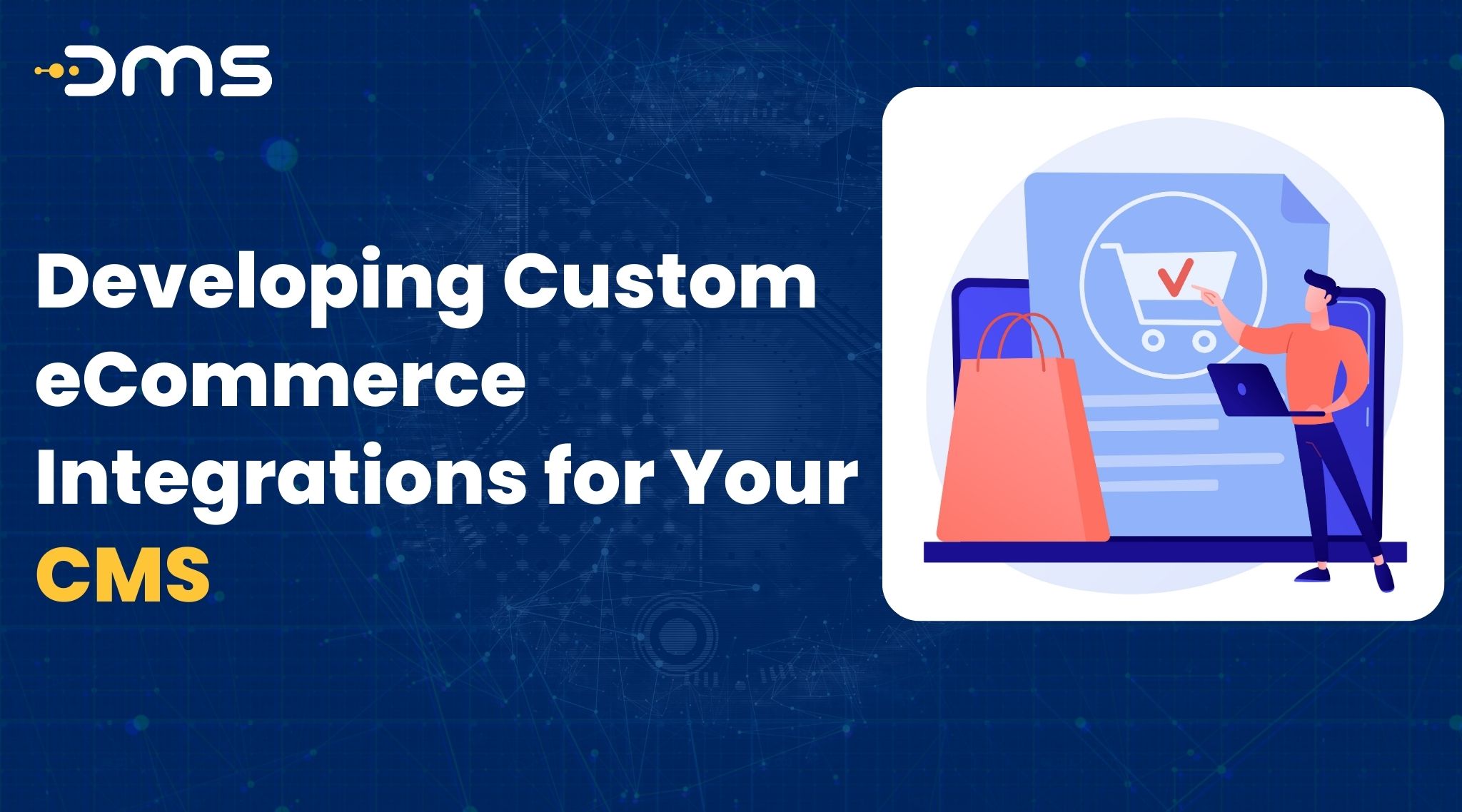eCommerce has grown to be an essential part of many enterprises in the modern digital age. A successful and easy-to-use eCommerce website may raise revenue, increase client retention, and eventually fuel growth. However, developing a custom eCommerce integration for your CMS (content management system) can be challenging, but the benefits are undeniable. In this article, we’re going to go through the advantages of developing custom eCommerce integrations for your CMS, how to accomplish it, and a few recommended practices to make sure that it works.
Are you tired of struggling to manage your eCommerce website separate from your CMS? Do you want to streamline your website management and increase revenue? If so, it’s time to develop a custom eCommerce integration for your CMS. By doing this, you’ll improve the functioning of your website, boost productivity, and provide those who visit with a better experience.
Introduction:
A CMS is a software application used to create and manage digital content. As it enables users to generate, update, and publish material without having to understand how to code, it is a crucial tool to handle website content. However, a CMS typically doesn’t have the functionality needed to manage an eCommerce website. That’s where custom eCommerce integrations come in. Your actions may manage both your website and online store from a single dashboard by integrating your CMS with your eCommerce platform.
Benefits of Developing Custom eCommerce Integrations
There are several benefits to developing custom eCommerce integrations for your CMS:
Increased Efficiency:
Managing your website and online store in one place can save time and reduce errors. This time-consuming procedure of switching between many systems for handling your material and items won’t be necessary.
Improved User Experience:
One is to give users a seamless experience by integrating your eCommerce platform with your content management system. The user experience on your website may be enhanced because they won’t have to toggle between many platforms in order to make a purchase or read the product information.
Increased Revenue:
An integrated eCommerce platform can increase revenue by making it easier for customers to make purchases. Customers are more likely to finish their purchases with a streamlined checkout experience, increasing sales.
Developing Custom eCommerce Integrations
Developing custom eCommerce integrations can be a complex process, but there are some best practices to follow to ensure a successful integration:
Define Your Integration Requirements:
Before starting the integration process, it’s essential to define your integration requirements. What features do you need? What information must be transferred across systems? Having a clear understanding of your requirements can help ensure a smooth integration process.
Choose the Right Integration Platform:
There are numerous integration platforms available, so picking the best one for your company is essential. Choose a platform that is simple to use, has many features, and offers helpful assistance.
Work with Experienced Developers:
Developing custom eCommerce integrations requires technical expertise, and it’s crucial to work with experienced developers. Look for developers who have experience in both CMS and eCommerce platforms, as well as experience with the integration platform you choose.
Best Practices for Custom eCommerce Integrations
There are some more best practices to bear in mind in addition to the ones mentioned above:
Test Your Integration:
It’s crucial that you thoroughly test your integration before installing your integrated website. Test all features and ensure that data is correctly shared between systems.
Monitor Your Integration:
Once your integration is live, it’s essential to monitor it regularly. Keep an eye out for any issues and deal with them as soon as possible.
Keep Your Systems Up to Date:
Both your CMS and eCommerce platforms will require updates over time. Always guarantee that the integration continues to work properly, it is crucial that you maintain both systems current.
Conclusion:
Developing custom eCommerce integrations for your CMS can significantly benefit your business. By streamlining your website management and improving your customers’ experience, you can increase efficiency and revenue. In order to ensure the success of any integration, you have to stick to the best practices when building and executing it. You can guarantee an effortless integration process and continuous achievement by establishing your integration needs, choosing the best integration platform, working with professional developers, evaluating your integration, and monitoring your systems.
In summary, custom eCommerce integrations for your CMS are an essential investment for any business that wants to improve its online presence and boost revenue. One may give your customers a smooth experience and improve website management with the appropriate strategy and experience. Don’t hesitate to explore custom eCommerce integrations for your CMS and take your online business to the next level.
